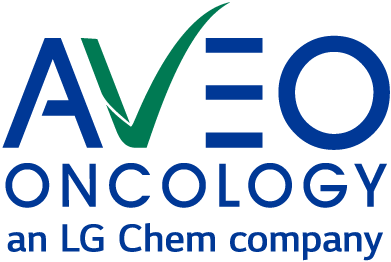April 5, 2006
AVEO Pharmaceuticals Presents a Novel System for the Generation of Fully Human Breast Tumors in Mice at AACR 2006
– Human-in-Mouse (HIM) system represents breakthrough in modeling of human breast cancer –
– HIM system offers potential for significantly improved predictability in preclinical drug testing –
CAMBRIDGE, MA April 4, 2006 – AVEO Pharmaceuticals, Inc., a biopharmaceutical company focused on the discovery and development of novel cancer medicines, announced today that is has developed the first system which allows for the generation of fully human breast tumors in mice. The Human-in-Mouse (HIM) system represents a significant improvement in modeling human breast cancer compared to existing preclinical xenograft models. The HIM system offers the potential for significantly improved predictability in preclinical drug testing.
Murray O. Robinson, Ph.D., VP of Oncology at AVEO Pharmaceuticals, Inc., presented the HIM model system at the American Association for Cancer Research (AACR) 2006 Annual Meeting in Washington, DC. Dr. Robinson’s presentation, “Efficient generation of spontaneous human breast cancers in mice using defined genetic elements”, was part of a symposium titled: Modeling Abnormal Proliferation in Model Organisms.
Traditional xenograft models, the mainstay of oncology preclinical drug testing, have been poorly predictive of clinical outcomes in treating human cancers. Many in the research community attribute the poor predictive performance of xenografts to the fundamentally artificial nature of xenograft derived tumors. In contrast, the HIM system begins with normal human breast tissue that is genetically engineered to contain mutations that are critical to the formation of human breast cancer. The engineered cells are transformed over time in vivo in a process that closely resembles the development of human breast cancer in a patient. The resulting human tumors can efficiently be used to further understand the genetic changes that are responsible for human breast cancer and to investigate potential therapeutic agents for treating breast cancer.
Tuan Ha-Ngoc, President and CEO of AVEO, said, “HIM represents a preclinical model that provides unique insight into the biology of human breast cancer. Along with the potential for discovering new molecular targets, HIM provides a potentially more predictive model for evaluating new drugs to treat human breast cancer. As we further develop our portfolio of novel oncology products, such as AV-412, the HIM system and AVEO’s proprietary Human Response Prediction™ platform will help us design clinical trials with a higher likelihood of success.”
About AV-412
AV-412 is a second generation oral, dual-kinase inhibitor slated to enter clinical trials in 2006 to evaluate its safety and efficacy in the treatment of solid tumors. It has shown excellent activity in various xenograft models and has a toxicity profile similar to other molecules in its class. Notably, in preclinical models, AV-412 is active against tumor cells that are resistant to first-generation kinase inhibitors. AV-412’s mechanism of action has the potential to benefit patients with Non-Small Cell Lung Cancer, Metastatic Breast Cancer, Pancreatic Cancer, Head & Neck Cancer and Hormone Refractory Prostate Cancer. AVEO’s Human Response Prediction platform offers an opportunity to exploit AV-412’s unique characteristics and will provide further insight into potential clinical settings, tumor subtypes and responsive patient populations.
About AVEO’s Human Response Prediction™ Platform
AVEO’s Human Response Prediction platform is based on AVEO’s proprietary, genetically-defined mouse models of human cancer. Each of these models is engineered to contain signature genetic mutations that are present in human disease. Beyond these cancer-initiating, engineered mutations, the resultant tumors acquire common and distinct spontaneous mutations during tumor progression, providing additional natural genetic variation akin to the range of genetic heterogeneity encountered across different primary human tumors. The tumor-to-tumor genetic variation in the system provides the opportunity to identify genetic correlations between responding and non-responding tumor populations, and to apply such genetic profiles in clinical development. Consequently, compared with traditional xenograft models that have proven to be non-predictive of efficacy, often leading to expensive and time-consuming hit or miss outcomes in clinical trials, AVEO’s cancer models are improved predictors of human response.
About AVEO
AVEO is a private biopharmaceutical company focused on the discovery and development of novel cancer therapeutics. The Company utilizes its proprietary, genetically-defined cancer models for the identification and validation of novel cancer targets, and has begun to build an impressive portfolio of drug discovery programs around these high-value targets. AVEO also leverages its Human Response Prediction platform to allow for the identification of genetic profiles that correspond with patient responsiveness. AVEO is located in Cambridge, Massachusetts. For more information, please visit the company’s website at www.aveopharma.com.
